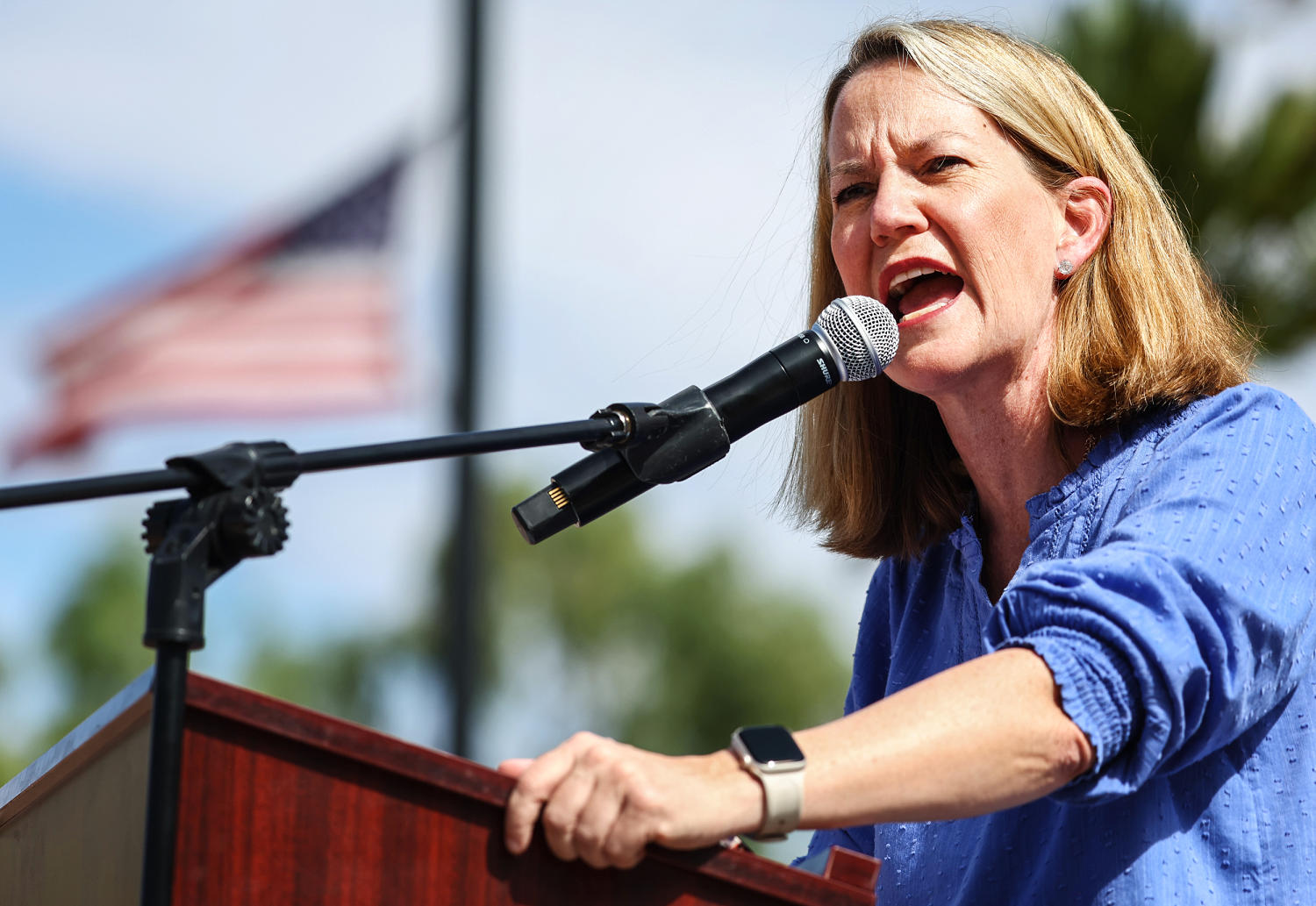Trump’s 2020 ‘fake electors’ charged with state crimes in Arizona


A state grand jury in Arizona on Wednesday indicted so-called “fake electors” who backed then-President Donald Trump in 2020, following a sprawling investigation into the alleged efforts to overturn Joe Biden’s win in the presidential election in the state.
One month after the 2020 election, 11 Trump supporters convened at the Arizona GOP’s headquarters in Phoenix to sign a certificate claiming to be Arizona’s 11 electors to the Electoral College, though Biden won the state by 10,457 votes and his electors were certified by state officials. The state Republican Party documented the signing of the certificate in a social media post and sent it to Congress and the National Archives.
Among those charged is Kelli Ward, who served as chair of the Arizona GOP during the 2020 election and the immediate aftermath. She tweeted on Jan. 6, 2021, after the attack on the U.S. Capitol: “Congress is adjourned. Send the elector choice back to the legislatures.” Ward was a consistent propagator of false claims that Arizona’s election results were rigged.
Others charged include: state legislators Anthony Kern and Jake Hoffman; Michael Ward, Kelli Ward’s husband; Tyler Bowyer, the Republican National Committee’s Arizona committeeman and the chief operating officer of the Trump-aligned Turning Point USA; Greg Safsten, the former Arizona GOP executive director; former U.S. Senate candidate Jim Lamon; Robert Montgomery, the former head of the Cochise County GOP; and Republican Party activists Samuel Moorhead, Nancy Cottle and Loraine Pellegrino.
The indictment lists Trump as “Unindicted Coconspirator 1.” It also includes redacted names of other people who have been charged in the case but have not yet been served.
Arizona Attorney General Kris Mayes, a Democrat, led the investigation. She won her election to be the state’s chief prosecutor in November 2022, replacing Republican Mark Brnovich, a one-time ally of Trump who later earned the former president’s scorn for not substantiating Trump’s claims of election fraud in the state.
“We conducted a thorough and professional investigation over the past 13 months into the fake electors scheme in our state,” Mayes said in a video announcing the charges. “I understand for some of you today didn’t come fast enough. And I know I’ll be criticized by others for conducting this investigation at all. But as I’ve stated before, and we’ll say here again, today, I will not allow American democracy to be undermined.”
The Arizona charges are the latest example of Trump’s efforts to overturn the 2020 election sprouting into legal cases during his 2024 bid to retake office.
Arizona was one of seven states where “alternate electors” signed paperwork falsely claiming Trump had won the state. “Alternate electors” in Nevada, Georgia and Michigan have already been charged by prosecutors in their respective states.
Attorney Kenneth Chesebro, one of the planners of the alleged scheme, pled guilty last year in Georgia on conspiracy charges brought against him, Trump and 17 others in the state. He is also believed to be one of the unidentified co-conspirators described by Special Counsel Jack Smith in his federal election interference indictment of Trump last year.
Chesebro and others, including Trump legal adviser John Eastman, argued in the months after the 2020 election that then-Vice President Mike Pence could use the existence of the alternate electors to name Trump the winner of the election as he presided over the electoral vote count in Congress on Jan. 6.
Eastman wrote in a memo: “At the end, he announces that because of the ongoing disputes in the 7 States, there are no electors that can be deemed validly appointed in those States. … There are at this point 232 votes for Trump, 222 votes for Biden. Pence then gavels President Trump as re-elected.”
Trump lost Arizona by just under 11,000 votes. As the Republican electors sent illegitimate certifications to Washington, Trump sought to put pressure on Maricopa County officials and other Arizona Republicans, including then-state House Speaker Rusty Bowers and then-Gov. Doug Ducey.
Trump placed a phone call directly to Ducey as the governor certified the state’s election results. Ducey muted the call.
Mayes’ term as Arizona attorney general has been marked by other election cases stemming from Trump’s false claims about fraud in the 2020 election and after.
Last fall, Mayes charged two local officials who delayed the certification of midterm election results in 2022 in Cochise County. The officials voted against certifying the county’s election results by the statutory deadline, after airing baseless accusations about the integrity of the election for months. The county certified its election results only after a court ordered it to do so.







